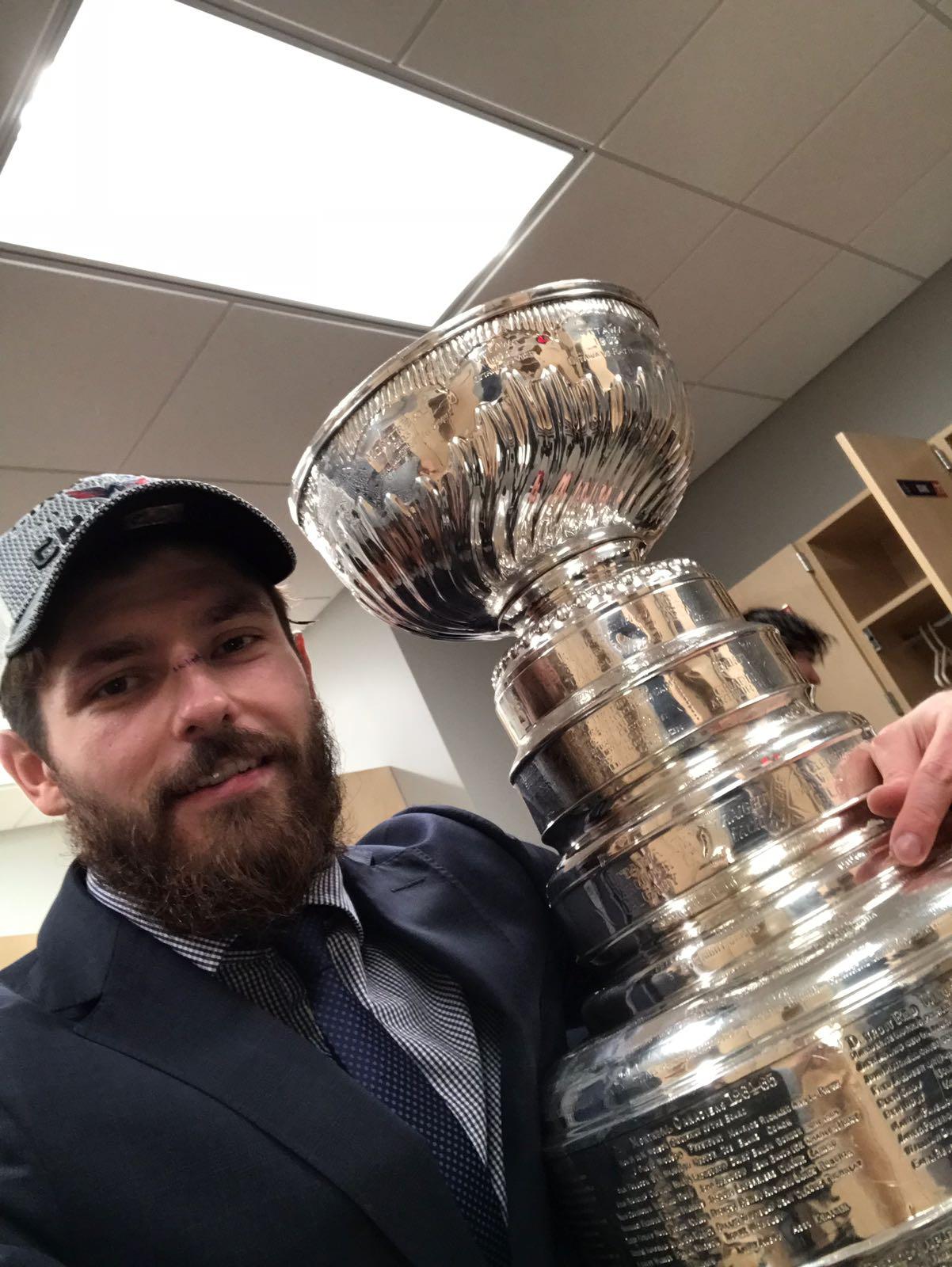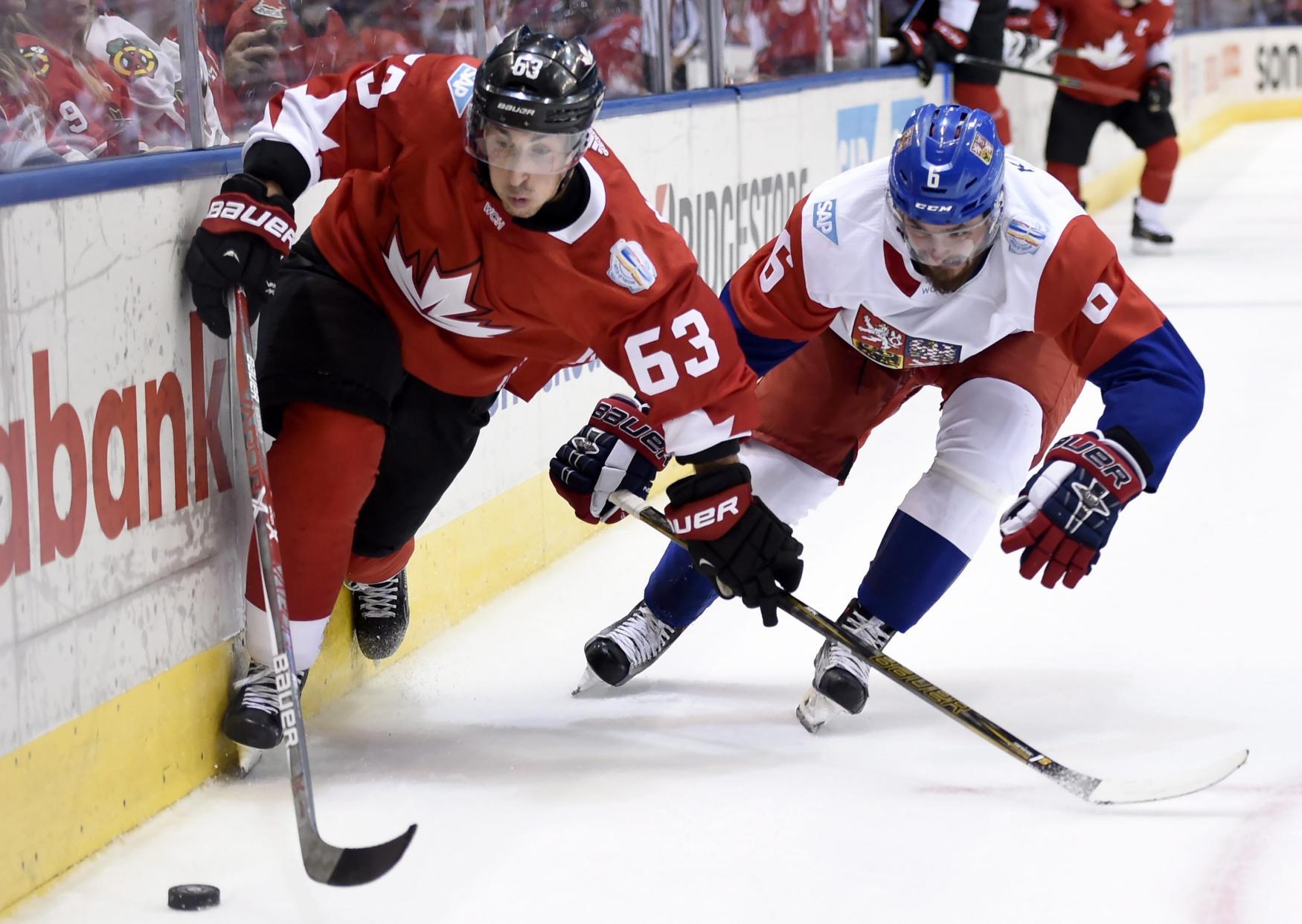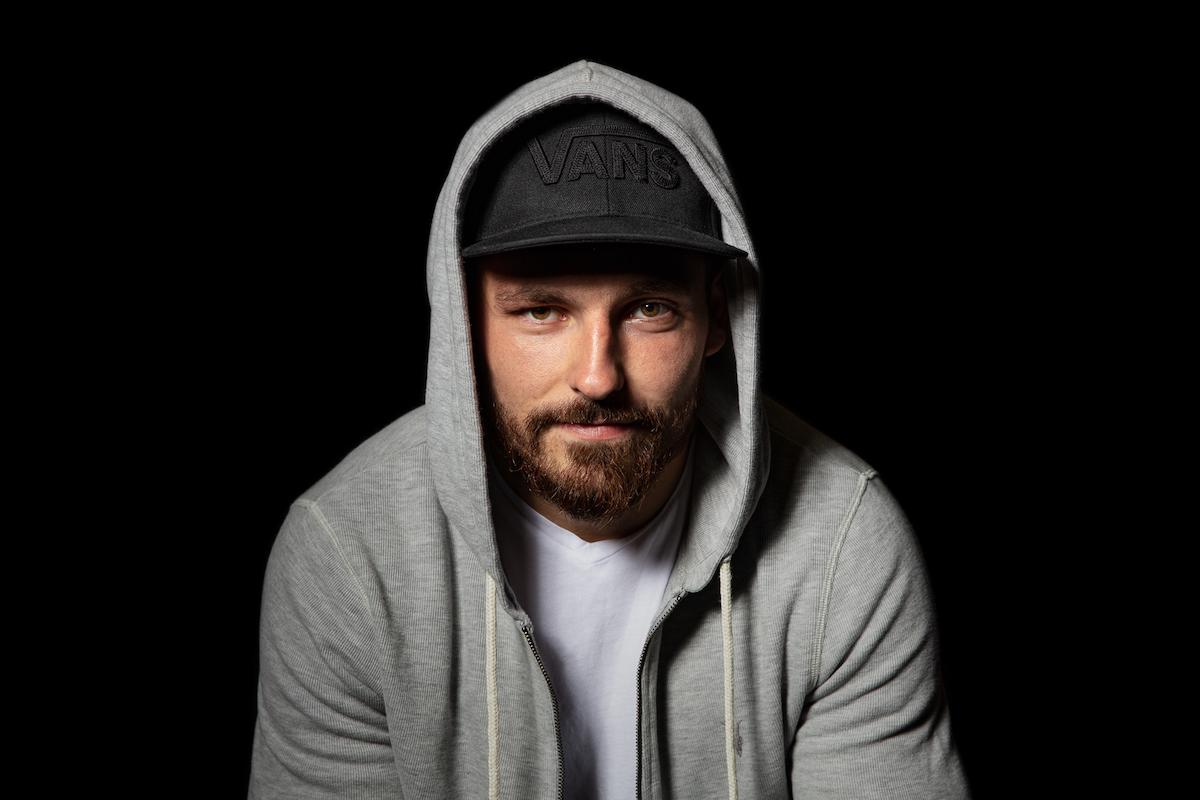Simply
Michal Kempný
ice hockey
Draisaitl 29. That was the name and a number on the Team Europe jersey that I was chasing.
It kept moving farther away from me with each stride. I tried to jump into the passing lane to cut off the puck that was heading toward Leon Draisaitl as he sprinted toward a breakaway, but the puck flew over my stick. I got to my feet and tried one more time, a second time and… nothing. That was the last play in that game.
There is probably no worse feeling for a hockey defenseman than when he is chasing an opponent's forward, who is going against his goalie. It’s pure helplessness when you know you won't catch him. You just hope he misses. That he won't score. That you might be able to distract him at the last second.
Draisaitl didn't give us the slightest chance. His shot was uncompromising, and we lost the second game at the 2016 World Cup of Hockey in overtime. We lost it after my mistake.
For the first time in my life, I played three-on-three in overtime, which was a new rule at the time that had not yet arrived in Europe from Canada. I did a nonsensical thing that you just can't do with such a small number of players. Instead of keeping the puck and making a play, I tried to shoot from the boards in the attacking zone. The goaltender blocked the shot directly to one of the opponents and he found Draisaitl rushing to our zone. I did not have time to recover.
 You already know the rest.
You already know the rest.
It wasn't the first time I had screwed something up on the ice; not the first time and not the last time. But for that moment, I was completely broken.
Everything had started so great. Even before the start of this tournament full of the best hockey players in the world, I felt like I was dreaming. The previous two years of my career were great. I left Kometa Brno with a feeling that I had developed into one of its most important players. I gained a lot of self-confidence in Omsk and at my first world championship in Moscow in 2016, I felt very good.
We were coached by Mr. Vůjtek, and that was always a pleasure. Until this day, I am haunted by the memory of the quarterfinals, in which we lost by a goal due to an offside, and then consequently, in the shootout. That team deserved more for the kind of hockey we played. For me personally, however, that championship became a confirmation that I was heading in the right direction. I was choosing NHL offers, and I was selected for the September World Cup. There was no doubt about me at all. I was supposed to be the key defenseman to initiate the game plan. I accepted the pressure that was put on me. I gladly accepted it. That's exactly what I wanted. I saw myself in this role.
I just might have accepted it too much. I felt the responsibility too strongly.
It was noticeable, for example, during my summer training. In order not to underestimate anything, I could not rest. In the morning I was on the ice, then to the gym, and the same in the afternoon. Once in the Kometa locker room, Martin Erat advised me not to push it so much; that I was working too hard. Unhealthily hard.
“No, I must. I must be ready for the World Cup,” I told him.
It's been five years and it feels like I was completely different back then. I didn’t listen to my body, and even though I felt tired, I was pushing as much as possible. You must! You must!
It wasn’t helpful.
I played well the first two exhibition games against Russia, however in Pittsburgh against Team North America, a collection of the top players from Canada and the United States who were 23 or under, I was no longer that good on the smaller ice rink and at the start of the tournament I suddenly felt strange.
Everyone will tell you: Psychology plays a crucial role in sports.
My very first shift during the first game against Canada, I started by taking the puck to the blue line. In a panic, I immediately wanted to shoot the puck towards the goaltender, but because it was a low shot, the defenseman blocked it and immediately passed the puck to a rushing Sidney Crosby. He was already two steps ahead of me. I didn’t catch him.
Hi, Michael, welcome to America. This is world-class hockey.
At least he didn't score. At the end of the first period, however, he challenged me once again. I was behind, carrying the puck and thinking about the next play. I was thinking too much, once again. I could have passed the puck to the center who was free, but it wouldn't be me if I didn’t try something special. But Crosby, who was after me, knows very well how to position himself to get his opponent under pressure. He stole the puck. One pass, second pass, and before I got off the ice, they scored a third goal with the sound of siren blaring; a turning point in that game.

The next game ended with Draisaitl's breakaway in overtime.
I've made a lot of mistakes during my career. Exactly like those two. Visible, unambiguous, but never in the spotlight of the World Cup, in games that the whole hockey world was watching.
Never with a sense that I took on too much responsibility for the national team game.
Never in a team full of NHL guys I didn't really know.
That’s how I introduced myself to a lot of them.
Those two blows to my self-confidence destroyed me. In the last game against the Americans, I ended up as the seventh defenseman and at that moment I didn't mind that I was sitting on the bench. I was so broken that I felt like I had forgotten how to play hockey. I got into a state where I didn't even leave the room when I didn't have to. We were all in Toronto with families, the boys were sightseeing, making trips, and I would rather sleep three or four hours after training than meet up with my parents, sister and brother-in-law. We all had our own rooms, which didn’t help my mental state.
Just me, my remorse and the four walls.
I was blaming myself, terribly. Even though it was completely useless, I was still going through what I had to do differently, tormented by the thought of ruining the team's chance to win and advance. I took it all personally. My teammates treated me wonderfully. They were not angry with me. I heard them say to let it go and cough it up. This happens.
Yeah, well guys, thank you, but still, I know I screwed up.

Even if you don't want to, you browse the internet articles and discussions and you know exactly what you will find there. He's a fool. He doesn't know how to play hockey. This won't benefit your self-confidence.
Ondrej Palát came to see me and told me to let it go. There is no time for such worries in the NHL. There is no point in drowning in your own mistakes when another game follows the next day. This was clear to me. I know that the best thing for hockey is to forget bad days as soon as possible, but I'm not like that. I was not yet ready for the environment that I found myself in. Physically, I trained myself hard, but I wasn’t able to balance my mind. That lesson helped me to realize this.
Those few days in Toronto totally knocked me to the ground. I flew straight to Chicago, where I was about to taste the NHL for the first time, and I asked myself what I was going to do there.
Only members of the Klub Bez frází can read further
For 199 CZK a month awaits you the plot of this and many other inspirational stories of czech athletes.

Vstoupit do Klubu
Inspirativní příběhy vyprávěné výjimečnými sportovci, jedinečné texty od novinářských osobností plné překvapivých souvislostí, podcasty nabité informacemi a setkání s osobnostmi. Pohled na sportovní svět tak, jak ho jinde nenajdete.
Did you like the story? Please share it.



